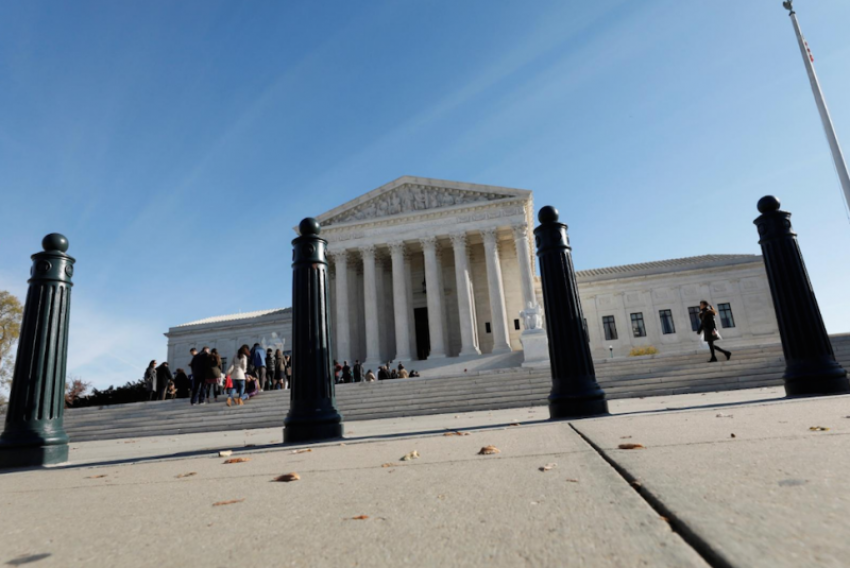Supreme Court: Firing gay, transgender employees violates federal law

The U.S. Supreme Court ruled that federal law prohibits discrimination on the basis of sexual orientation and gender identity, upholding lower court decisions on the matter.
This means that a Michigan-based Christian-owned funeral home was wrong to fire a male employee after he transitioned to female, according to the Supreme Court.
In a decision released Monday morning, the high court concluded that Title VII of the Civil Rights Act of 1964 does apply to sexual orientation and gender identity, even though neither category is specifically mentioned by the law.
The opinion applied to three cases brought to the high court — Altitude Express Inc. v. Zarda, Bostock v. Clayton County, Georgia, and most notably R.G. & G.R. Harris Funeral Homes v. Aimee Stephens & EEOC.
The opinion was delivered by Justice Neil Gorsuch, who was joined by Chief Justice John Roberts, and Justices Ruth Bader Ginsburg, Sonia Sotomayor, Elena Kagan, and Stephen Breyer.
While acknowledging that neither “sexual orientation” nor “gender identity” were meant to be definitions for “sex” according to Title VII, the majority held that LGBT identity is still linked to sex.
“The statute’s message for our cases is equally simple and momentous: An individual’s homosexuality or transgender status is not relevant to employment decisions,” read the majority opinion in part.
“That’s because it is impossible to discriminate against a person for being homosexual or transgender without discriminating against that individual based on sex.”
Regarding concerns about religious liberty, the majority opinion noted that claims under the Religious Freedom Restoration Act “might supersede Title VII’s commands in appropriate cases.”
“But how these doctrines protecting religious liberty interact with Title VII are questions for future cases too,” continued Gorsuch, concluding that Harris “did unsuccessfully pursue a RFRA-based defense in the proceedings below.”
“So while other employers in other cases may raise free exercise arguments that merit careful consideration, none of the employers before us today represent in this Court that compliance with Title VII will infringe their own religious liberties in any way.”
Justice Samuel Alito authored a dissenting opinion, being joined by Justice Clarence Thomas, in which he denounced the ruling as "deceptive" and “legislation” rather than judicial interpretation.
“The Court attempts to pass off its decision as the inevitable product of the textualist school of statutory interpretation championed by our late colleague Justice [Antonin] Scalia, but no one should be fooled,” wrote Alito.
“The Court’s opinion is like a pirate ship. It sails under a textualist flag, but what it actually represents is a theory of statutory interpretation that Justice Scalia excoriated––the theory that courts should 'update' old statutes so that they better reflect the current values of society.”
Justice Brett Kavanaugh authored a separate dissent, arguing that “the responsibility to amend Title VII belongs to Congress and the President in the legislative process, not to this Court.”
“Our role is not to make or amend the law. As written, Title VII does not prohibit employment discrimination because of sexual orientation,” he added.
Alliance Defending Freedom, which represented Harris, denounced the ruling in a series of posts on Twitter, declaring that “it is disappointing that a majority of the justices were unwilling to affirm that commonsense principle.”
“Redefining ‘sex’ to mean ‘gender identity’ will create chaos and enormous unfairness for women and girls in athletics, women’s shelters, and many other contexts. Civil rights laws that use the word ‘sex’ were put in place to protect equal opportunities for women,” tweeted ADF.
“Allowing a court or government bureaucrats to redefine a term with such a clear and important meaning undermines those very opportunities—the ones the law was designed to protect.”
The American Civil Liberties Union celebrated the decision on Twitter as a “landmark victory is the work of decades of LGBTQ people.”
“Aimee Stephens, Don Zarda, and Gerald Bostock won! The Supreme Court ruled that it was against the law to fire our clients for being LGBTQ,” tweeted the ACLU.
“Our work is not done. We still need Congress to protect LGBTQ people from discrimination in public accommodations, federal programs, and more. Congress must pass the Equality Act NOW.”
Before the decision was released, 21 states already had laws against discrimination on the basis of LGBT identity, with seven more holding such protections for public employees, according to NBC News.
In April, the Supreme Court announced that it was taking up three cases focused on if "sex" discrimination protections in the 1964 Civil Rights Act include sexual orientation and gender identity, even though the act does not mention either category.
The high court consolidated Bostick with Altitude Express Inc. v. Zarda, with oral arguments being heard last October.



























